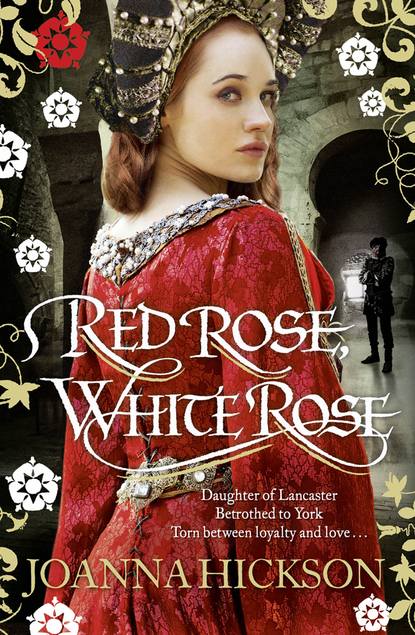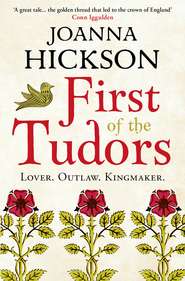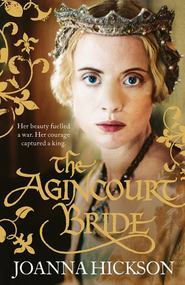По всем вопросам обращайтесь на: info@litportal.ru
(©) 2003-2024.
✖
Red Rose, White Rose
Настройки чтения
Размер шрифта
Высота строк
Поля
When the key turned, unlike the previous night, loneliness was not in my mind – and neither was regret. I was not afraid. I had chosen this course of action, fate had shown me what overwhelming feelings passion could release and it was somehow not in my nature to deny them. I had no thought for yesterday or tomorrow, only for the moment and what that moment might achieve. I was young and my senses were whirling almost out of control, except that, behind the powerful mutual attraction that had drawn me to the beautiful John and the joy I ardently desired to find in his arms, there was also a deep determination not to be used, either by him or by my own family. There was no doubt that my actions that night served my own needs as much as his but I was not to know that he would read them very differently. He was older and more idealistic and his feelings ran truer and deeper. I could not have asked for a more gentle and ardent lover to show me the delights of mutual passion. How could he have known that when he offered his love so sweetly, he chose the wrong woman?
Myrtle did indeed make a wild and fragrant bed. After we had spent our passion John slept deeply and soundlessly but I lay awake, my mind in turmoil. I had barely noticed the pain of defloration and had subsequently wondered, after the thrilling throes of climax, what there was about it that the Church revered so highly and the virgin martyrs died for. My body ached from the unaccustomed activity of love-making but I nevertheless yearned to stay beside my lover, to feel again the pleasure of his caresses and the joy and fulfilment of union.
Nevertheless I forced myself to rise, softly and soundlessly, from the bed and reach for the dirty shift and kirtle that I had discarded before supper. The borrowed gown from which John had hurriedly unlaced me lay on the floor among the jumble of his doublet and hose and I almost stumbled over them as I searched for my riding boots. Carrying them I turned the key cautiously in the lock, holding my breath as it scrunched over the cogs and wheels, but I heard no stirring from the bed. As I had hoped, the outer chamber was empty and the door to the stairway open. I paused at the foot of the stair to slide my feet into my boots and thread the laces. I could hear rats scuttling about in the straw and I could not face crossing the byre barefoot. The horses snuffled and shifted on their feet, dozing like the guard propped up on a sheaf of straw against the wall. Everything now depended on what I found when I opened the heavy oaken gates; if the yett had been lowered, escape from the tower would be impossible.
8 (#ulink_4cb7f801-9b6c-5041-8bb4-716a9d23fcbd)
To Aycliffe Tower
Cuthbert
In the trees behind Brancepeth church the ground dropped away into the same deep, narrow dene on which the castle stood. Feeling my way in the dappled moonlight, I led my horse to the edge where I found a useful thicket of bushes to tie him to while I ventured hand over foot down the steep side, clinging to roots and saplings. Within minutes I reached secure footing on a sloping gravel path dug into the dene wall. I climbed, guessing it would lead to the sally gate of the castle mentioned by my drinking companion. Where the ground levelled out, sure enough, I caught sight of the moon’s glare reflected off a high expanse of the castle curtain, and at its base, flush with the stone wall, a small archway, defended by an overhead turret and sealed by a studded wooden door, just large enough to allow a mounted man to pass through.
Keeping within the shadow of the bushes, I turned and retraced my steps, for the path ended at the castle. The archway had been newly built, the door thick. Following the beck downstream towards the River Wear, I deduced that it would provide a discreet and direct route to the Bishop of Durham’s hunting lodge at Auckland, on the edge of Spennymoor: this had lately been developed into a military fortification, with a large bailey to accommodate troops mustering for the defence of the Scottish marches. The bishop had appointed Sir John Neville as its constable, but I asked myself if Sir John would have taken Cicely to such a busy place.
As a young squire in my father’s retinue, on the last of his annual tours of his northern manors, I remember hearing of a particularly poor and remote peel tower a few miles south of Auckland which struggled to wrest five pounds in annual revenue from woefully undernourished villeins. I wracked my brains for the name of the manor. The only thing I could remember of any relevance was that when the old earl’s will was revealed, Hal Neville had remarked that ‘the peel in the bog’ was one manor he was more than happy for the new earl to keep. Instinct told me that this might be where Cicely had been taken and, after all, it was my instincts that Lady Joan had encouraged me to employ in her daughter’s aid.
I collected my horse and followed the beck as far as the River Wear while the moon rose high in the sky, its bright light flooding over uneven moorland covered with large areas of gorse and dead bracken. Fast-moving shadows cast by scudding clouds did not hamper my progress south. I carefully avoided the small hamlets and fortified farms on the route, because on such moonlit nights lookouts would be posted for reivers, and I did not want to be sighted and apprehended as one of their ilk. But most of the country between Brancepeth and Richmond, thirty miles to the south, was Neville territory, and familiar to me; its manors were now distributed piecemeal between the two branches of the family. Lady Joan had, on occasion, detailed me to represent her in settling the feuds and disputes between tenants arising from this complicated division of property. So although I could not remember the name of the peel in the bog, I did have a rough idea of where it was located.
When I eventually spotted the tower, poking up like a lone tooth from a fetid maw of flat, moss-covered marsh, I faced the problem of approaching it without either being seen or swallowed in its mire. There was something truly ghastly about the way the moonlight glinted off the surrounding expanse of innocent-looking moss and reeds, concealing the lurking presence of a bottomless bog beneath; when I tried to urge him on, my horse snorted and danced on the spot, flatly refusing to take one step onto such unstable ground.
Common sense told me there had to be a safe path or else how did its inhabitants reach the tower? For nearly an hour I rode around the edge of the morass, trusting my horse’s instinct not to venture onto dangerous terrain, but I could find no evidence of a marked route. I contemplated leaving my horse and trying to navigate the bog on foot but as the moon dropped in the heavens I realized I would be taking a foolish and possibly fatal risk, particularly in the dark. There was no option but to wait until sunrise.
As a squire I had spent months with the marcher scouts, a troop of hard-bitten, border-reared fighting men recruited for their intimate knowledge of the wild lands between Scotland and England and their ability to move secretly through them on their dale-trotter ponies. They could survive for weeks patrolling their section of the march, living off the land and avoiding human contact whilst observing all movement of men and animals without detection. I admired their skills and I would now apply all I had learned of them. I hobbled my horse in an overgrown spinney. My stomach made sharp protest at its lack of nourishment but I silenced it with a long swig from the wineskin slung from my saddle, rolled myself in my campaign blanket and lay down to gather what sleep I could in the undergrowth.
The unmistakable sound of a hue and cry roused me a couple of hours later. Shouting, the long wail of a hunting horn and the answering sounding of hounds ripped through the veil of sleep and jerked me to my feet, sleeve dagger at the ready. Dawn had mottled the eastern sky in shades of red, pink and grey and my horse’s head was up, ears pricked. I crept to the edge of the spinney for a cautious search but could see no movement from the section of bog within my view. Nevertheless the sinister sounding of horn and hounds and the shouts of men in pursuit were loud to my left. I decided that being mounted would give me an advantage in a tight situation, and better visibility. In a matter of moments I had tacked up my horse and was heading out of the spinney.
The reason for all the noise quickly became evident: a mud-streaked figure was struggling at the edge of the bog, only yards from firm ground but caught thigh deep in wet mud and unable to reach safety. It was Cicely, almost unrecognizable, covered in mud, exhausted and clearly terrified, her face twisted into a desperate snarl as she rocked herself to free one foot or the other from the clinging ooze. The hue and cry was close by, any moment it would be here and what I assumed was a break for freedom would be brought to an end, or, more terribly, she would fall flat into the watery mud and disappear beneath its surface.
‘Do not move!’ I shouted, spurring my horse forward and galloping as near to her as the horse would go. ‘It is me, Cuthbert. I will get you out. Wait.’
I jumped from the saddle, commanded my horse to stand and ripped my blanket from the restraint of its buckling.
‘Oh, Cuddy, thank God it is you!’ Cicely’s eyes were enormous with fright in her mud-daubed face. ‘Quick! The dogs are coming.’
‘Yes, Cis, I can hear them.’ Turning briefly, I caught sight of a man on the path pushing sticks into the ground as a companion behind him hauled on the taut leashes of two scent-hounds in full voice. I took aim and threw out the blanket. ‘Here, catch this.’
One corner landed near her hand and she grabbed it like a drowning sailor might grab a life-line. ‘Do not let go, Cis! Lie down, I’m going to pull you out,’ I said urgently.
The Cicely I knew might have quibbled at falling face down in a bog but luckily she wasted no time in clutching two sides of the blanket in a white-knuckled grip and throwing herself horizontal, face down in the soggy blanket. Immediately there was less suction drag on the cloth and I managed to haul her swiftly towards me until I could hold her hands and heave her, drenched and panting, onto the firm ground.
I could see she was about to speak and I growled at her. ‘Save your breath, Cis. I have a horse and we will ride away from this first.’
Although her weight was nothing to arms honed by years of sword-play and archery, her soaked skirts hampered my stride so that I stumbled rather than ran towards my stoical horse who fortunately obeyed orders and stood firm, even as I threw Cicely face down over his withers and leaped up behind her. ‘Hang on for your life. I’ll stop as soon as I can,’ I yelled and dug in my spurs.
He exploded away just as the first pursuers stepped onto firm ground and began racing towards us, scent-hounds baying with excitement. Cicely’s right hand closed on my leg like a vice as our hectic pace threatened to hurl her from the horse’s neck. I am not certain we would have made it but instinctively the courser threw up his head, tossing her back towards me so that I could wrap one hand in the cloth of her skirt, while the other handled the reins. She must have been winded and in pain but she made no sound and we galloped away as if fleeing from a battlefield, the important difference being that we were victorious. The only glance I managed to make behind me showed a dozen mud-spattered men spilling from the bog-path yelling in frustration. One was noticeable for his red tunic emblazoned with a white saltire cross and his shock of fair hair. The tall figure of Sir John Neville was familiar to me from sharing duties with him on the Scottish march. White-faced and wide-eyed, he looked like a man in shock.
9 (#ulink_2cbe81eb-fb86-58b3-91d3-6df6d2d76bac)
The Raby Bath House
Cicely
Cuddy rode away from that accursed bog as if the hounds of hell were at his heels while I pitched and bumped over his horse’s neck, offering desperate but silent prayers to the Queen of Heaven. I had no breath even to murmur an Ave, every thud of the horse’s hooves seemed to force out what little air I managed to drag into my lungs and every so often I had somehow to raise my head for a life-giving gulp. Fortunately, just as I had started to fear I could hold on no longer, the pace began slowing and we came to a halt. When I fell to the ground my legs would not support me and I crumpled in a muddy, sodden heap under the horse’s feet, a safe landing place because he could not move another step. His head hung down and his sides heaved. We were both gasping like stranded fish.
It was several minutes before I found the strength to sit up. By then Cuddy had dismounted and satisfied himself that there was no sound of pursuit before pulling me out from under the horse and unhitching his wineskin from the saddle-bow. He put it to my lips and I spluttered as the sharp liquid hit my throat.
‘How did … you know … where …?’ I croaked, unable to go on.
Cuddy knew what I meant. ‘Intuition. Instinct. Second sense. Your mother sent me on a wild goose chase and look – I found the goose.’ He grinned. ‘After all, I am your champion.’
I gave a weak smile and wheezed, ‘My champion …’ My voice cracked and failed once more.
He bowed. He did not seem breathless in the least. ‘Glad to be of service. But you take the laurel wreath, Cis. How in God’s name did you manage to break out of the tower?’
That was when reality hit me. Vivid memories came flooding back. I bit my lip to stop the tears and stifle the words threatening to spill off my tongue. I knew then that they would all ask the same question. How had I managed to get away from my captors? It was a question I decided there and then that I would not answer. Let them wonder. Except for Cuddy they had done nothing to help me. I did not owe an explanation. But had it not been for Cuddy, everything I had done to enable my escape would have been for nothing. I might as well have died.
I shook my head and decided it was easier to speak in short bursts. ‘Not difficult. Bog was the problem. Frightening. Then I heard the horn. Tried to hurry. Fatal step – if not for you. Thank you, Cuddy.’
Gradually I felt strength returning to my legs. ‘There is one more thing you can do for me, if you will,’ I said, taking another gulp from the wineskin and handing it back. ‘After you have helped me up, that is.’
I held out my hand and Cuddy pulled me gently to my feet. I swayed and staggered and he steadied me, regarding me appraisingly, his gaze travelling from my sodden skirts to my dripping locks. I had not found my hat in the dark and I daresay my cheeks were streaked, for I had not managed to hold back all my tears. ‘I think I know what that one thing is,’ he said.
‘More intuition?’ This time my smile was rueful.
‘You do not want to return to Raby looking like a camp follower who has been caught in a thunderstorm.’
I nodded. ‘Exactly.’ For the first time I glanced around me, taking stock of our surroundings. We were in a small clearing among mature trees. It could have been almost any wood in England. ‘Where are we?’
‘Houghton Forest. About ten miles from Raby. It will take us an hour to get there once the horse is rested. There is a stream over yonder. You could wash off some of the mud while we wait. When we get to Raby you can hide somewhere safe and I will fetch Hilda. She will know what to bring to restore you to your customary splendour.’
He was teasing, his eyes twinkling, trying to lighten my mood, and I appreciated his restraint in not pressing me on my escape. Cuddy may have been conceived in a barn but his manners were castle-bred. ‘And Hilda knows how to hold her tongue,’ I said with a nod of approval. ‘But where would I be safe?’
‘There is an old bath house on a lake in the woods south of the castle. You can barricade yourself in there while I fetch Hilda. No one goes near it now but they say our father used to entertain there in days gone by.’ Cuddy gave me a look, which told me not to enquire about who the old earl had invited to a bath house in the woods or what the entertainment had been. Of course there were plenty of rumours, but in deference to my mother nobody ever talked about other ‘by-blows’ her husband might have sired on pretty girls around the various Neville territories. No others had joined the household. For some reason, in our father’s eyes, Cuthbert of Middleham had been special. Perhaps Cuddy himself did not know why.
The bath house was no woodland shack. It was a domed, stone-built grotto perched on the side of a glassy mere which reflected a stand of magnificent trees that must have been planted when our great-grandfather enclosed the Raby hunting park a hundred years earlier. Although the trees were still leafless, waiting for spring to spread its canopy of green, the castle itself was not visible, but I knew it was not far away because in order to reach the place unseen we had skirted the village of Staindrop and entered the park like poachers, avoiding all well-used tracks. Staindrop stood only a mile from Raby; my father lay in its glorious collegiate church, under a marble tomb, beside his first wife. Cuthbert forced his way into the bath house through a wooden door, not locked or barred but swollen from winter damp, and left me with the wineskin, telling me he would be back within an hour.
The bath house consisted of a single chamber. Stripped of any of the luxury or comforts it might once have contained, cobwebs festooned its walls, all hung about with insect carapaces; droppings of various small animals littered the floor and the curved steps that led up to the parapet of the round stone bath and, at the bottom of the bath, the remains of a deserted nest covered what I guessed must have been a drain for emptying the water into the lake. Outside, on the bank of the mere, I found a firepit where a cauldron would have been slung over the flames. My imagination conjured up a vivid image of servants fetching steaming bucket-loads from the cauldron, because surely nothing would have cooled the ardour of the ‘bathers’ more than icy water straight from the lake.
I could not wait in the bath house. It was full of echoes, the ribald shouts of men and the lusty laughter of women, the splash of water on naked flesh, and I did not like it. My father had always been my image of the perfect knight, lord and sire. In recent days that gleaming icon had become tarnished by the stories I had heard and the truths I had learned.
The silence and stillness of the mere drew me. I guarded against discovery by taking up a position a few yards from the bath house, hidden by the branches of a holly tree growing close to the edge of the lake. There I sat on a convenient log and I studied my reflection in the glassy surface of the lake. What I saw absorbed and disturbed me. It was not that my hair was tangled in Medusa-like curls and my face was still mud-streaked, despite my efforts to wash it: I was not the same person who had set out blithely from Raby with her falcon three days before. Then I had been thoughtless and carefree, a young girl on the brink of marriage but who had given little thought to what that marriage might mean. My life had been ordered for me and while I had occasionally rebelled against the restrictions placed on me, I had not seriously questioned my own feelings or considered my own future. I had scarcely known I had any of my own feelings. Now there was a new look in the wide blue eyes that stared back at me and a more determined set to the curved mouth which did not smile. There were secrets behind those eyes; thoughts and words which those lips had spoken but would never speak again. The child who had gone out hunting had come back an adult.
10 (#ulink_2ca324e4-b6d0-5815-9ab8-f4c9bc3b216e)
Raby Castle
Cicely









